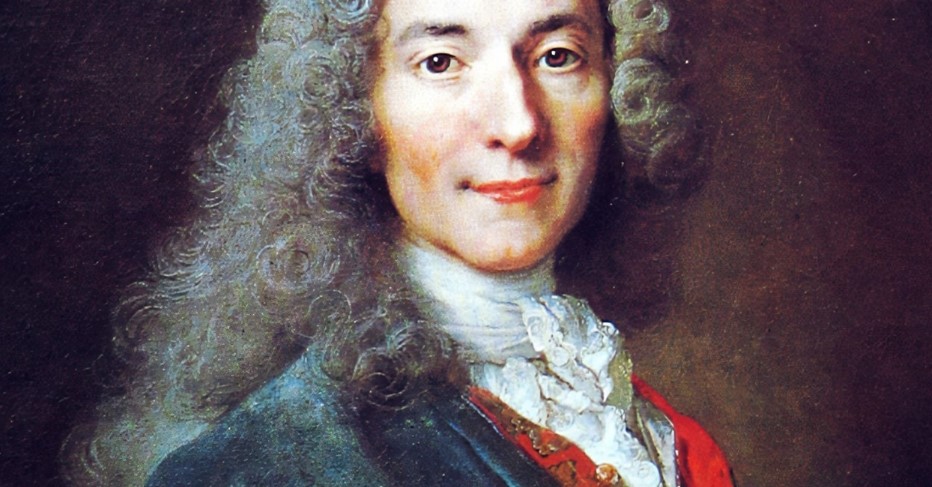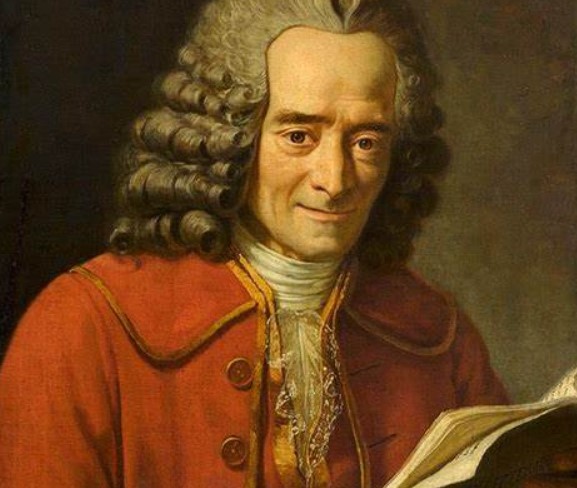The fifth child and fourth son of Francois Arouet and his wife Marie Marguerite Daumard, Voltaire was born in the fifth child’s year. Armand-Francois and Robert, two of the Arouet family’s boys, had died as infants, and Voltaire (then known as Francois-Marie) was nine years younger than his only surviving brother, Armand, and seven years younger than his only sister, Marguerite-Catherine.
Their family was a part of the French nobility, albeit at the lowest conceivable position; Francois Arouet was a lawyer and a treasury officer. In later years of his life, Voltaire asserted that he was the illegitimate son of a higher-ranking nobleman named Guérin de Rochebrune.
When Was Voltaire Born
One of the most influential authors to come out of France was Francois-Marie Arouet, well known by his pen name, Voltaire (born November 21, 1694 in Paris, France; died May 30, 1778 in Paris). Even though only a small number of his books are still read,
he is nevertheless regarded in repute all over the world as a brave campaigner against tyranny, prejudice, and cruelty. The work of Voltaire actively propagates a vision of progress that people of all nations have stayed responsive to because of its capacity for critical analysis as well as its humour and satire.

His long life included the last years of classicism and the threshold of the revolutionary era; at this time of transition, the works he produced and the activities he participated in had a significant impact on the course that European culture would go on to follow.
Also Read: When Was Marco Polo Born?
Heritage And Youth Of Voltaire
Middle-class upbringing characterised Voltaire’s early years. His birth certificate lists November 21, 1694 as the date of his birth, however he has publicly asserted on multiple times that his birthday is actually February 20.
He thought his songwriter father, Officer Rochebrune, had given birth to him.
Neither his older brother Armand nor his fictitious father, François Arouet, a notary who became a receiver at the Cour des Comptes (audit office), were very fond of him.
He rarely mentioned his mother, therefore very little is known about her. She died when he was seven, and ever since then he has shown signs of being a rebellious child and an adult.
He became quite close to his godfather, the freethinking and epicurean abbé de Châteauneuf, who gave him away to the legendary courtesan Ninon de Lenclos when she was 84 years old.
His upbeat demeanour and grounded perspective were undoubtedly gifts from his middle-class upbringing.
He studied at the Jesuit University of Louis-le-Grand in Paris, where he developed a passion for writing, performing, and mingling with others. He was grateful for the college’s instillation of a classical appreciation in him, but he found the fathers’ religious teachings to be laughable and unconvincing.
He was present during the final years of Louis XIV’s reign and would never forget the suffering, military catastrophes, and religious persecution of 1709.
But he never lost his respect for the monarchy and his belief that progressive monarchs are necessary for change.
After finishing college, he decided not to pursue a career in law. While working as a secretary at the French embassy in The Hague, he developed feelings for the daughter of a daredevil.
The French ambassador, concerned about a controversy, recalled him to France’s capital. He visited the Temple, the centre of freethinking culture at the time, because he intended to pursue literature full-time despite his father’s desires.

Voltaire became the wit of Parisian society after the death of Louis XIV, and his epigrams were frequently cited under the more morally permissive Regency. However, when the duc d’Orléans, the regent’s dissolute son, heard that he had made fun of him, he had to back down.
He was locked up in the Bastille for over a year after being exiled from Paris (1717). Despite his upbeat outward demeanour, he took learning the standard literary conventions very seriously. The success of his first tragedy, Oedipe, which he wrote in 1718, prompted him to write more tragedies.
He took the surname Voltaire after being heralded as the next great classical dramatist after Jean Racine. There is still some mystery around the birth of this pseudonym.
Whether or not it is an anagram of “Arouet le jeune” is debatable (i.e., the younger). He wanted, more than anything, to be the greatest Virgil France had never seen. He toiled over an epic poem in which King Henry IV figured prominently.
the monarch who ended the religious wars in France and won the hearts of his subjects. While modern readers may find this Henriade’s tedious attempt to mimic Virgil’s Aeneid annoying, his contemporaries likely perceived only the noble concept of tolerance that motivated the work.
Read More: Where Was Ruby Bridges Born?
First Career And Early Romance Of Voltaire
Voltaire left school and headed for Paris. He lied about his occupation and claimed to be a notary’s assistant in order to gain experience in the legal field. But the truth is that he spent much of his time on poetry writing. His father eventually learned the truth and sent him to law school in Caen, Normandy, away from Paris.

Despite this, Voltaire kept penning his works. He just stopped penning poetry and started doing academic research and essays instead. Many of the higher-ranking nobility he spent time with became fond of him because of his funny writing and speaking manner, which initially developed at this time.
With his father’s help, Voltaire got a job in 1713 as the secretary to the French ambassador at The Hague in the Netherlands. His employer was the marquis de Châteauneuf. There, Voltaire fell in love with Catherine Olympe Dunoyer, a Huguenot immigrant, in what is thought to be his first recorded romantic involvement.
The marquis pushed Voltaire to end the relationship and return to France because it was deemed inappropriate and generated a fuss. His future in politics and law was effectively over at this moment.

